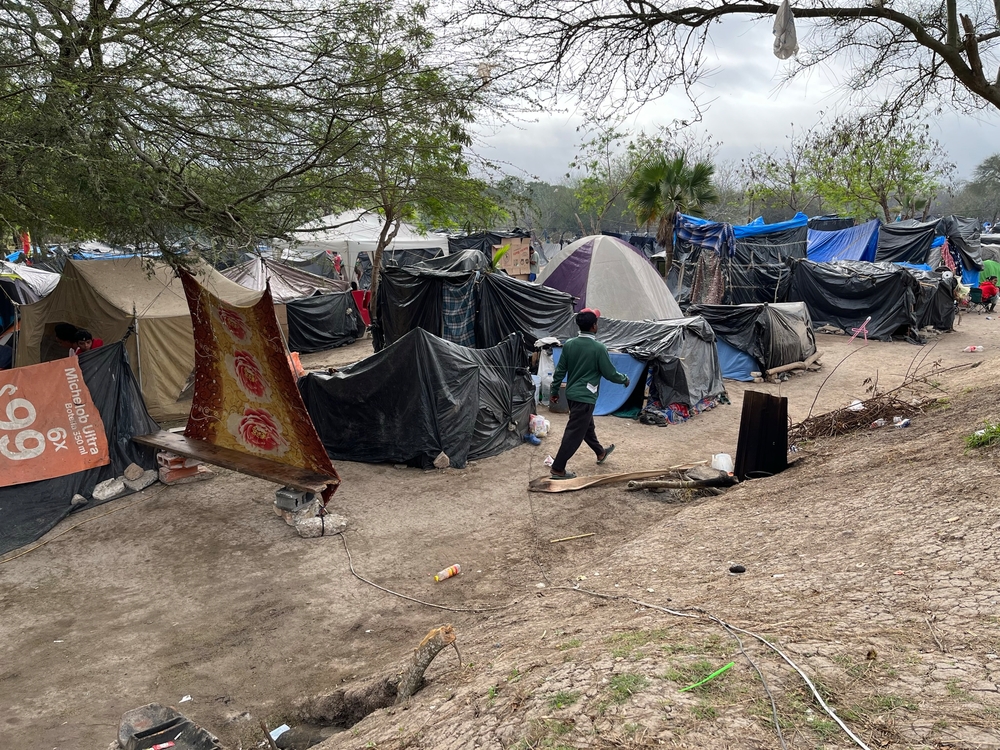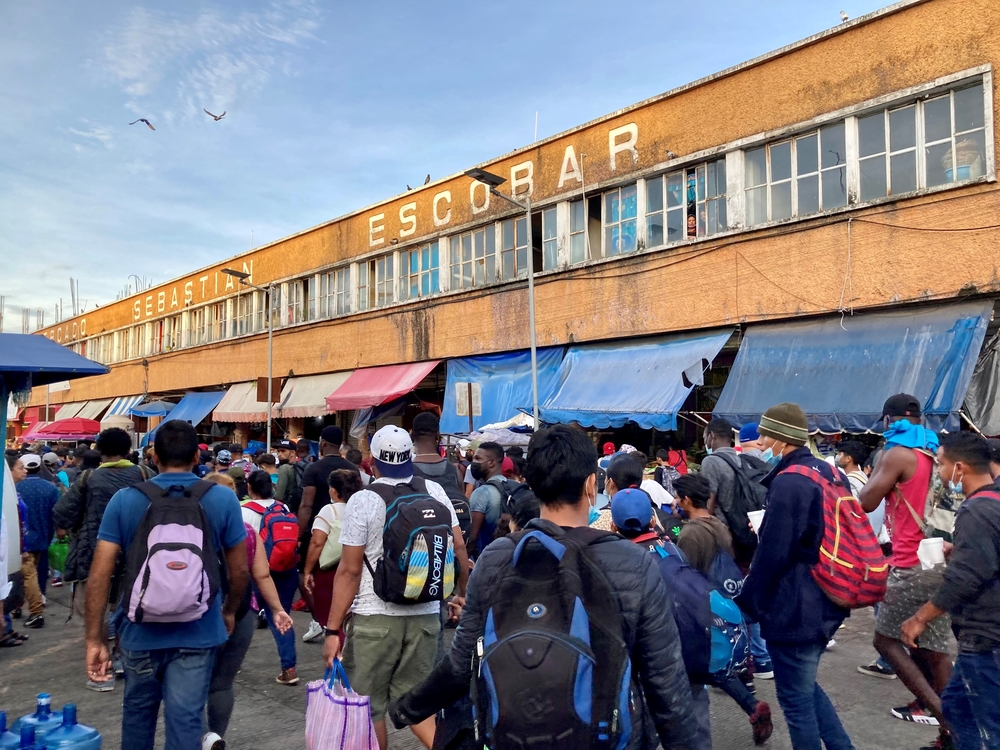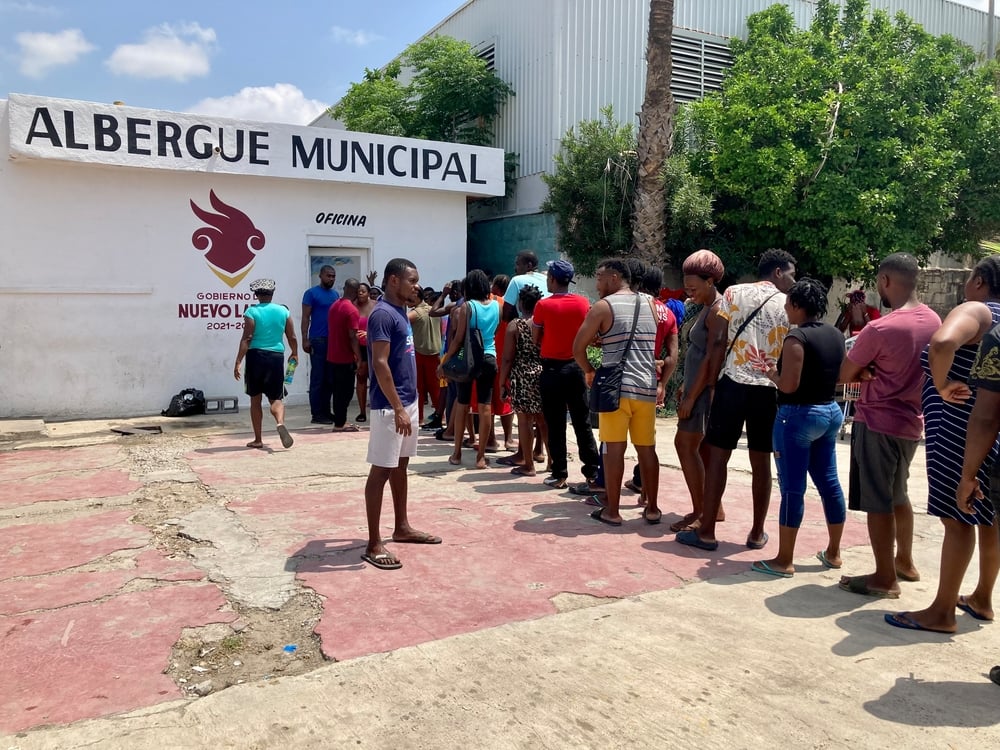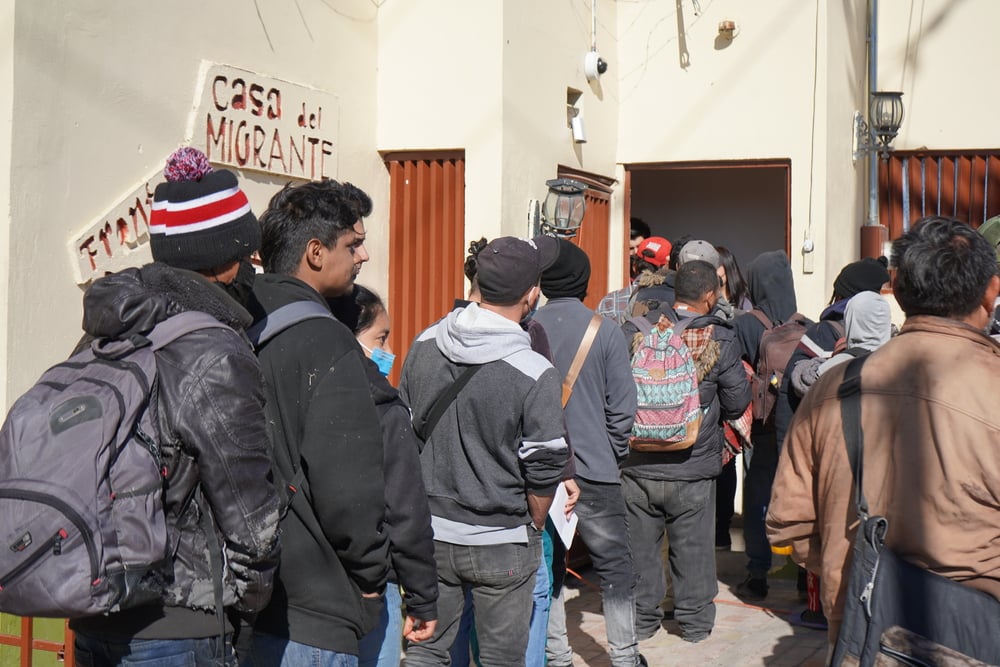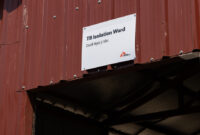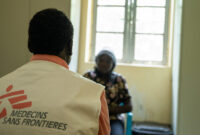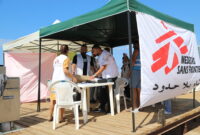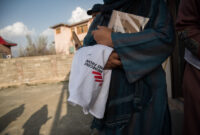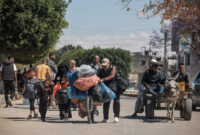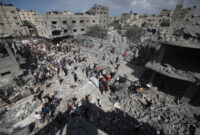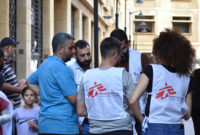Migrants in northern Mexico: life on hold waiting for safety
In Matamoros, a city on Mexico’s northern border, about 2,500 migrants are living in a new makeshift camp in deplorable conditions, hoping to seek safety in the US.
Esteban Montaño Vásquez, MSF field communications manager for Mexico and Central America visited the camp last week. Here he talks about the people he met and how recent policy changes are making it even harder for some people to seek safety.
When I entered the camp, a woman approached me and said, “Last night there was a shooting over there.” I was shocked. She told me it’s not the first time she’s heard gunshots near the camp. She said young men who live in the camp fear being forcibly recruited by organized crime gangs.
I asked her what else was affecting her life in the camp. She said that during the four weeks she has been staying here, no one has supplied drinking water, and they rarely receive food donations. “On Sundays, people from a church have come to give us sandwiches with ham and cheese and a drink,” she said. “We must get everything on our own, and many people here don’t have a penny.” The woman was carrying a five-liter jug of water, which she had recently purchased at a nearby store.

The camp sits on the southern bank of the Rio Grande—a river less than 20 meters [about 21 yards] wide. Its waters are hidden under a thick layer of vegetation. On the other side begins the United States, whose promises of safety and wellbeing justifies the pain they have suffered to reach this point.
Smells of smoke and accumulated waste filled the air. I walked around puddles—remnants from the recent cold snap that sent temperature below freezing. People tried to warm their tents with plastic bags.
Venezuelan flags were hoisted on top of some tents—most migrants I spoke to were from there. In recent years, more than six million Venezuelans have fled their country. While most Venezuelans end up in Colombia and other countries in Latin America, many risk the treacherous journey to the US to escape extreme hardships and dangers elsewhere. When the Biden administration expanded Title 42 in October to include Venezuelans, thousands were expelled to Matamoros.
Title 42 is a harmful Trump era policy—continued and expanded by the Biden administration—that allows the US to expel asylum seekers arriving at the southern US border to Mexico and other countries in the region without due process.
As I walked around, I saw people preparing breakfast on improvised stoves in pots blackened by charcoal smut, while others swept the area around their tents. A group of children lined up around the only water tank serving the 2,500 people living there -the water is not potable. Nearby, two girls were playing with a plastic toy castle and a princess doll with long blonde hair. The impact of the horrific living conditions on people’s health quickly became clear.
A young man—noticing the MSF logo on my shirt—came out of his tent to tell me that he had been suffering from bloody diarrhea for days. He had a prescription for the medication to treat it but could not afford to buy it.
While he was talking, a couple holding their baby daughter in their arms also approached me. Since last night, their baby was having difficulty breathing and was wheezing. Before long, a middle-aged man suffering from diabetes came up and asked if I could give him the medication he needed.
MSF ended its programs in Matamoros after the previous camp was bulldozed in March 2021, amidst (now broken) promises from the Biden administration to rebuild a dignified and humane migration system. Our teams returned to Matamoros at the end of 2022 as the needs increased, and we now provide medical and mental health care three days per week at a mobile clinic on the outskirts of the camp.

Under a canvas tent, more than 15 people were waiting to be seen by MSF medical staff. People were seen according to the level of urgency of their medical conditions, always prioritizing pregnant women and children under five years old.
The clinic itself is in a small office that MSF’s team converted into a medical room. A nurse and a doctor assisted two girls who were brought in by their mothers. They both had minor respiratory ailments—one of the most common diagnoses for people living in such hostile conditions.
Yirimar, a Venezuelan woman, exited the clinic with her young daughter. I asked her how she ended up here. “I lived in Peru for a couple of years before starting the journey to the United States with my husband and my baby,” she said. “We arrived in Matamoros at the beginning of December, and thank God we will soon be able to [enter] the United States to meet a cousin who is going to sponsor us . . . In the United States, we want to work hard to pay off our debts and leave behind everything that happened to us during the trip.”
Yirimar told me that after many attempts, she had finally secured an appointment with a US official through the new Customs and Border Protection (CBP) phone application, CBP One—now the only way for asylum seekers to request exemptions to title 42 and apply for asylum in the US without being expelled to Mexico.
While Yirimar was eventually able to secure an appointment for later that week, most people I spoke with had not been so lucky. I was told about many problems people had encountered with the app: It was not running correctly on some phones; there are very few appointments released each day; sometimes the only applications available are in cities thousands of miles away; they had to buy a new phone with a better camera because the app requested a picture of the applicant. Others didn’t have access to Wi-Fi or even a phone or could not complete the form as they did not read English or Spanish.
MSF has provided medical and mental health care along the migration route from South America to the US for years. I have seen how essential it is to expand safe pathways for migrants and asylum seekers. But access to safety should not depend on the nationality of those seeking it, whether they have sponsors in the US, their ability to afford a plane ticket to the US, or their legal status in a third country.
Until these challenges are resolved, people seeking safety -such as those that I met in Matamoros- will continue to be forced to live in deplorable conditions.
